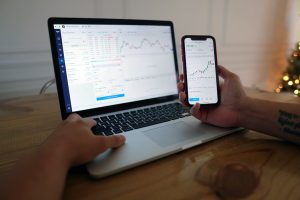Forex trading has become increasingly popular in recent years, with more and more people looking to take advantage of the potentially lucrative opportunities offered by the global currency markets. However, in order to trade forex effectively, you need to have a reliable and trustworthy broker on your side. With so many options out there, it can be difficult to know where to start when it comes to picking a broker forex. In this article, we’ll explore some of the key factors to consider when selecting a forex broker, helping you to make an informed decision that will give you the best chance of success.
Regulation and Licensing
One of the most important things to consider when choosing a forex broker is regulation and licensing. In order to operate legally, all forex brokers must be regulated by a relevant authority. This ensures that they follow strict rules and guidelines, and that they treat their clients fairly and ethically. Different countries have different regulatory bodies, so it’s important to do your research and make sure that your chosen broker is licensed and regulated in the relevant jurisdiction. Some of the most respected regulatory bodies include the Financial Conduct Authority (FCA) in the UK, the National Futures Association (NFA) in the US, and the Australian Securities and Investments Commission (ASIC).
Trading Platform
The trading platform is the software that you use to execute trades and manage your account. It’s important to choose a broker that offers a reliable and user-friendly trading platform that suits your needs. Most brokers offer a variety of platforms, including popular options like MetaTrader 4 and 5, cTrader, and proprietary platforms developed by the broker itself. Look for a platform that has a wide range of analytical tools, a user-friendly interface, and fast execution speeds.
Trading Costs
Forex trading can be an expensive activity, so it’s important to consider the costs involved when selecting a broker. The most common costs associated with forex trading include spreads, commissions, and swap rates. Spreads are the difference between the bid and ask price of a currency pair, and are the main way that brokers make money. Commissions are an additional fee charged by some brokers on top of the spread, and are typically charged per trade. Swap rates are interest charges that are applied to positions that are held overnight. Look for a broker that offers competitive spreads and commissions, as well as reasonable swap rates.
Customer Service
Forex trading can be a complex and challenging activity, so it’s important to choose a broker that provides excellent customer service and support. Look for a broker that offers a range of support options, including email, phone, and live chat. Ideally, the broker should also have a comprehensive FAQ section and educational resources to help you learn more about forex trading.
Deposit and Withdrawal Options
Finally, it’s important to consider the deposit and withdrawal options offered by your chosen broker. Look for a broker that offers a wide range of payment methods, including credit and debit cards, bank transfers, and e-wallets like PayPal and Skrill. It’s also important to check the fees and processing times associated with each payment method, as these can vary significantly between brokers.
In conclusion, choosing a forex broker is a crucial part of your trading journey. By considering factors such as regulation and licensing, trading platform, trading costs, customer service, and deposit and withdrawal options, you can find a broker that meets your needs and gives you the best chance of success in the global currency markets.





